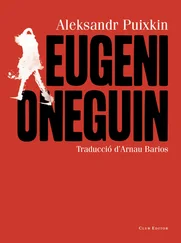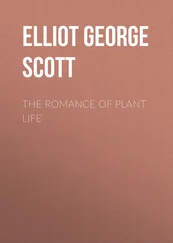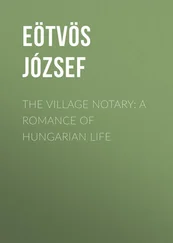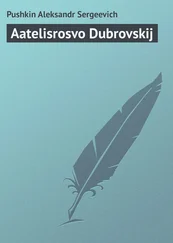He was no fool, and Eugene mine,
To friendship making no pretence,
Admired his judgment, which was fine,
Pervaded with much common sense.
He usually was glad to see
The man and liked his company,
So, when he came next day to call,
Was not surprised thereby at all.
But, after mutual compliments,
Zaretski with a knowing grin,
Ere conversation could begin,
The epistle from the bard presents.
Oneguine to the window went
And scanned in silence its content.
It was a cheery, generous
Cartel, or challenge to a fight,
Whereto in language courteous
Lenski his comrade did invite.
Oneguine, by first impulse moved,
Turned and replied as it behoved,
Curtly announcing for the fray
That he was "ready any day."
Zaretski rose, nor would explain,
He cared no longer there to stay,
Had much to do at home that day,
And so departed. But Eugene,
The matter by his conscience tried,
Was with himself dissatisfied.
In fact, the subject analysed,
Within that secret court discussed,
In much his conduct stigmatized;
For, from the outset, 'twas unjust
To jest as he had done last eve,
A timid, shrinking love to grieve.
And ought he not to disregard
The poet's madness? for 'tis hard
At eighteen not to play the fool!
Sincerely loving him, Eugene
Assuredly should not have been
Conventionality's dull tool—
Not a mere hot, pugnacious boy,
But man of sense and probity.
He might his motives have narrated,
Not bristled up like a wild beast,
He ought to have conciliated
That youthful heart—"But, now at least,
The opportunity is flown.
Besides, a duellist well-known
Hath mixed himself in the affair,
Malicious and a slanderer.
Undoubtedly, disdain alone
Should recompense his idle jeers,
But fools—their calumnies and sneers"—
Behold! the world's opinion! [66] A line of Griboyedoff's. (Woe from Wit.)
Our idol, Honour's motive force,
Round which revolves the universe.
Impatient, boiling o'er with wrath,
The bard his answer waits at home,
But lo! his braggart neighbour hath
Triumphant with the answer come.
Now for the jealous youth what joy!
He feared the criminal might try
To treat the matter as a jest,
Use subterfuge, and thus his breast
From the dread pistol turn away.
But now all doubt was set aside,
Unto the windmill he must ride
To-morrow before break of day,
To cock the pistol; barrel bend
On thigh or temple, friend on friend.
Resolved the flirt to cast away,
The foaming Lenski would refuse,
To see his Olga ere the fray—
His watch, the sun in turn he views—
Finally tost his arms in air
And lo! he is already there!
He deemed his coming would inspire
Olga with trepidation dire.
He was deceived. Just as before
The miserable bard to meet,
As hope uncertain and as sweet,
Olga ran skipping from the door.
She was as heedless and as gay—
Well! just as she was yesterday.
"Why did you leave last night so soon?"
Was the first question Olga made,
Lenski, into confusion thrown,
All silently hung down his head.
Jealousy and vexation took
To flight before her radiant look,
Before such fond simplicity
And mental elasticity.
He eyed her with a fond concern,
Perceived that he was still beloved,
Already by repentance moved
To ask forgiveness seemed to yearn;
But trembles, words he cannot find,
Delighted, almost sane in mind.
But once more pensive and distressed
Beside his Olga doth he grieve,
Nor enough strength of mind possessed
To mention the foregoing eve,
He mused: "I will her saviour be!
With ardent sighs and flattery
The vile seducer shall not dare
The freshness of her heart impair,
Nor shall the caterpillar come
The lily's stem to eat away,
Nor shall the bud of yesterday
Perish when half disclosed its bloom!"—
All this, my friends, translate aright:
"I with my friend intend to fight!"
If he had only known the wound
Which rankled in Tattiana's breast,
And if Tattiana mine had found—
If the poor maiden could have guessed
That the two friends with morning's light
Above the yawning grave would fight,—
Ah! it may be, affection true
Had reconciled the pair anew!
But of this love, e'en casually,
As yet none had discovered aught;
Eugene of course related nought,
Tattiana suffered secretly;
Her nurse, who could have made a guess,
Was famous for thick-headedness.
Lenski that eve in thought immersed,
Now gloomy seemed and cheerful now,
But he who by the Muse was nursed
Is ever thus. With frowning brow
To the pianoforte he moves
And various chords upon it proves,
Then, eyeing Olga, whispers low:
"I'm happy, say, is it not so?"—
But it grew late; he must not stay;
Heavy his heart with anguish grew;
To the young girl he said adieu,
As it were, tore himself away.
Gazing into his face, she said:
"What ails thee?"—"Nothing."—He is fled.
At home arriving he addressed
His care unto his pistols' plight,
Replaced them in their box, undressed
And Schiller read by candlelight.
But one thought only filled his mind,
His mournful heart no peace could find,
Olga he sees before his eyes
Miraculously fair arise,
Vladimir closes up his book,
And grasps a pen: his verse, albeit
With lovers' rubbish filled, was neat
And flowed harmoniously. He took
And spouted it with lyric fire—
Like D[elvig] when dinner doth inspire.
Destiny hath preserved his lay.
I have it. Lo! the very thing!
"Oh! whither have ye winged your way,
Ye golden days of my young spring?
What will the coming dawn reveal?
In vain my anxious eyes appeal;
In mist profound all yet is hid.
So be it! Just the laws which bid
The fatal bullet penetrate,
Or innocently past me fly.
Good governs all! The hour draws nigh
Of life or death predestinate.
Blest be the labours of the light,
And blest the shadows of the night.
"To-morrow's dawn will glimmer gray,
Bright day will then begin to burn,
But the dark sepulchre I may
Have entered never to return.
Читать дальше











